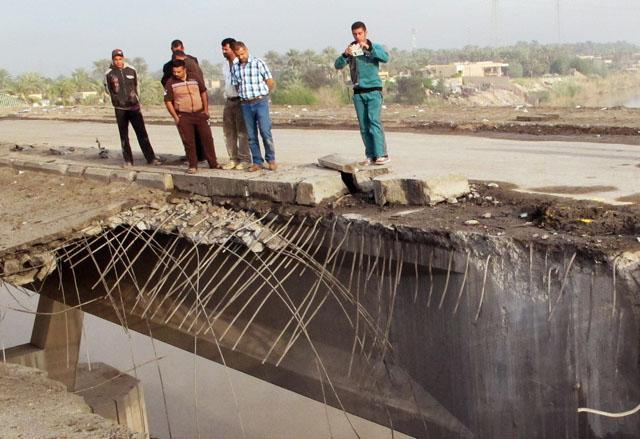You are here
Maliki warns of poll delay after election chiefs quit
By AFP - Mar 26,2014 - Last updated at Mar 26,2014

BAGHDAD — Iraq’s premier warned Wednesday that April legislative polls may be delayed as he pushed for a controversial election law to be amended after electoral chiefs suddenly quit complaining of political interference.
The electoral officials are pressing for the same reform to the law ahead of the scheduled April 30 vote, amid doubts the polls can in any case be held countrywide as anti-government fighters still control a town on Baghdad’s doorstep.
Much is at stake as Prime Minister Nouri Maliki bids for a third term with his security credentials badly damaged by a surge in violence to levels not seen since 2008, and the country battles to rebuild its conflict-battered economy and boost oil production.
Diplomats have said that even though the Independent High Electoral Commission’s nine-member board resigned en masse on Tuesday the vote was unlikely to be delayed as all major political parties had agreed it had to take place on time.
But the mere prospect of a postponement has sparked concern, with Maliki warning that “if IHEC stays this way, that means... the election will be delayed”.
‘Troubles one after another’
“We will enter a tunnel we might not be able to get out of,” the premier said in his weekly televised address. “Troubles will come, one after another, against the state.”
The IHEC’s board has been frustrated with what they say is a vague provision in Iraq’s electoral law that requires parliamentary hopefuls to be “of good reputation”.
Based on that article, a judicial panel has barred several prospective lawmakers, including Maliki opponents such as former finance minister Rafa Al Essawi, with no obvious avenue of appeal.
Parliament has meanwhile reportedly ruled that the IHEC must not bar any candidates unless they have criminal convictions, a decision an electoral official said was at odds with that of the judicial panel.
Maliki called for IHEC board members to withdraw their resignations while urging parliament to pass an amendment to the law “as fast as possible”.
The IHEC’s chairman said an amendment to the disputed article could end the impasse.
“If there is any problem, they [parliament] have to amend it through legislation,” Sarbat Rashid told AFP, after holding talks with diplomats from the UN mission to Iraq, the US embassy, and the European Union mission, as well as parliament speaker Osama Al Nujaifi.
A diplomatic source, speaking on condition of anonymity, said that while the resignations had been submitted to parliament, “I do not expect that parliament will accept them, because the timing is critical for elections”.
“Most likely, what the IHEC would like to have done, they would like the article to be amended,” the diplomat said.
“The IHEC’s problem is that they are squeezed between the judicial panel and parliament, and they are trying to extract themselves.”
The diplomat said because the resignations were unlikely to be accepted by parliament, elections were likely to go ahead next month on schedule.
The looming vote has been a factor in the rising bloodshed in recent months, analysts and diplomats say.
Maliki and other Shiite political leaders have been determined to be seen taking a hardline against militants, rather than reach out to the Sunni Arab minority in a bid to undercut long-term support for militancy.
But despite widely trumpeted operations against insurgents, bloodletting has continued, with more than 450 people killed so far this month, and upwards of 2,100 already this year, according to an AFP tally based on official reports.
And anti-government fighters have held control of the Sunni city of Fallujah, which lies just a short drive from Baghdad, for more than two months.
Related Articles
The board of Iraq’s electoral commission resigned en masse on Tuesday in protest at political and judicial “interference”, throwing a general election due next month into disarray.
Members of Iraq’s electoral commission retracted their resignations on Sunday, having threatened to quit en masse in protest against political interference just one month before a nationwide vote.
BAGHDAD — Iraq’s parliament voted on Wednesday to hold a manual recount of votes in the country’s May 12 parliamentary election, two lawmake

















